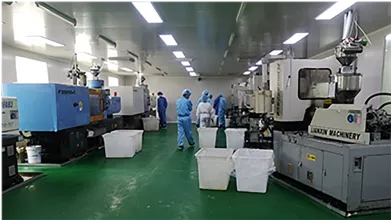
-
 Afrikaans
Afrikaans -
 Albanian
Albanian -
 Amharic
Amharic -
 Arabic
Arabic -
 Armenian
Armenian -
 Azerbaijani
Azerbaijani -
 Basque
Basque -
 Belarusian
Belarusian -
 Bengali
Bengali -
 Bosnian
Bosnian -
 Bulgarian
Bulgarian -
 Catalan
Catalan -
 Cebuano
Cebuano -
 Corsican
Corsican -
 Croatian
Croatian -
 Czech
Czech -
 Danish
Danish -
 Dutch
Dutch -
 English
English -
 Esperanto
Esperanto -
 Estonian
Estonian -
 Finnish
Finnish -
 French
French -
 Frisian
Frisian -
 Galician
Galician -
 Georgian
Georgian -
 German
German -
 Greek
Greek -
 Gujarati
Gujarati -
 Haitian Creole
Haitian Creole -
 hausa
hausa -
 hawaiian
hawaiian -
 Hebrew
Hebrew -
 Hindi
Hindi -
 Miao
Miao -
 Hungarian
Hungarian -
 Icelandic
Icelandic -
 igbo
igbo -
 Indonesian
Indonesian -
 irish
irish -
 Italian
Italian -
 Japanese
Japanese -
 Javanese
Javanese -
 Kannada
Kannada -
 kazakh
kazakh -
 Khmer
Khmer -
 Rwandese
Rwandese -
 Korean
Korean -
 Kurdish
Kurdish -
 Kyrgyz
Kyrgyz -
 Lao
Lao -
 Latin
Latin -
 Latvian
Latvian -
 Lithuanian
Lithuanian -
 Luxembourgish
Luxembourgish -
 Macedonian
Macedonian -
 Malgashi
Malgashi -
 Malay
Malay -
 Malayalam
Malayalam -
 Maltese
Maltese -
 Maori
Maori -
 Marathi
Marathi -
 Mongolian
Mongolian -
 Myanmar
Myanmar -
 Nepali
Nepali -
 Norwegian
Norwegian -
 Norwegian
Norwegian -
 Occitan
Occitan -
 Pashto
Pashto -
 Persian
Persian -
 Polish
Polish -
 Portuguese
Portuguese -
 Punjabi
Punjabi -
 Romanian
Romanian -
 Russian
Russian -
 Samoan
Samoan -
 Scottish Gaelic
Scottish Gaelic -
 Serbian
Serbian -
 Sesotho
Sesotho -
 Shona
Shona -
 Sindhi
Sindhi -
 Sinhala
Sinhala -
 Slovak
Slovak -
 Slovenian
Slovenian -
 Somali
Somali -
 Spanish
Spanish -
 Sundanese
Sundanese -
 Swahili
Swahili -
 Swedish
Swedish -
 Tagalog
Tagalog -
 Tajik
Tajik -
 Tamil
Tamil -
 Tatar
Tatar -
 Telugu
Telugu -
 Thai
Thai -
 Turkish
Turkish -
 Turkmen
Turkmen -
 Ukrainian
Ukrainian -
 Urdu
Urdu -
 Uighur
Uighur -
 Uzbek
Uzbek -
 Vietnamese
Vietnamese -
 Welsh
Welsh -
 Bantu
Bantu -
 Yiddish
Yiddish -
 Yoruba
Yoruba -
 Zulu
Zulu
tiny plastic sample spoons
The Impact of Tiny Plastic Sample Spoons on the Environment
In recent years, the proliferation of single-use plastics has raised significant concerns regarding environmental sustainability. Among these plastic items, tiny sample spoons—often used in food tasting events, ice cream shops, and promotional giveaways—have become a focal point in discussions about plastic waste. While these little utensils may seem insignificant on their own, their cumulative effect on our environment is anything but trivial.
Tiny plastic sample spoons are typically made from polypropylene, a type of plastic that can take hundreds of years to decompose. During this time, they contribute to the growing problem of plastic pollution in our landfills, oceans, and natural habitats. Many consumers may not realize that these spoons often end up as litter, particularly in urban areas where they can be easily discarded after a brief use. Once discarded, they can pose serious threats to wildlife. Animals often mistake plastic debris for food, leading to ingestion that can result in injury or even death.
Moreover, the vast majority of plastic sample spoons are not recycled. Due to their small size, they often fall through the cracks in recycling facilities, resulting in them being treated as waste. Even when people attempt to recycle them, many local recycling programs do not accept such small items, leading to their inevitable fate in landfills. This issue is compounded by the fact that plastic production is only expected to rise in the coming years, making the problem of tiny sample spoons increasingly urgent.
tiny plastic sample spoons

Fortunately, awareness of plastic pollution is rising, leading to innovative solutions. Many businesses are beginning to switch to biodegradable or compostable alternatives for sample spoons. Materials such as cornstarch or bamboo can provide the same functionality without the long-lasting environmental impact associated with traditional plastics. Additionally, some establishments are encouraging customers to bring their own reusable utensils, promoting a culture of sustainability.
As consumers, we can also play a crucial role in mitigating the environmental impact of tiny plastic sample spoons. Being mindful of our consumption and opting for businesses that prioritize eco-friendly practices can create a ripple effect throughout the industry. By speaking up about the importance of reducing plastic waste, we can inspire change and foster a collective commitment to preserving our planet for future generations.
In conclusion, while tiny plastic sample spoons may appear insignificant, their environmental impact is far-reaching. By recognizing the dangers associated with their use and supporting sustainable alternatives, we can help combat the ever-growing challenge of plastic pollution, ensuring a healthier planet for all.
-
Premium Metal Dropper Bottle for Precise Dispensing 250ml & 1ml Options AvailableNewsJul.04,2025
-
20 ml Headspace Vials - High Quality Polyethylene & Plastic Vials for Lab UseNewsJul.04,2025
-
Small Bottle with Pipette - Precise Dispensing 100ml Pipette Bottles for Essential Oils & Lab UseNewsJun.24,2025
-
Acetic Anhydride Bottle for Accurate Dropper Measurement in Pharmacy Use High-Quality Dropper BottlesNewsJun.10,2025
-
Innovative PET Bottle Design for Juice – Unique Shapes & Customization OptionsNewsJun.10,2025
-
20 Pack Sterilized Petri Dishes – Assorted Sizes, High Quality Small Plastic Petri Dishes for Lab UseNewsJun.10,2025






















